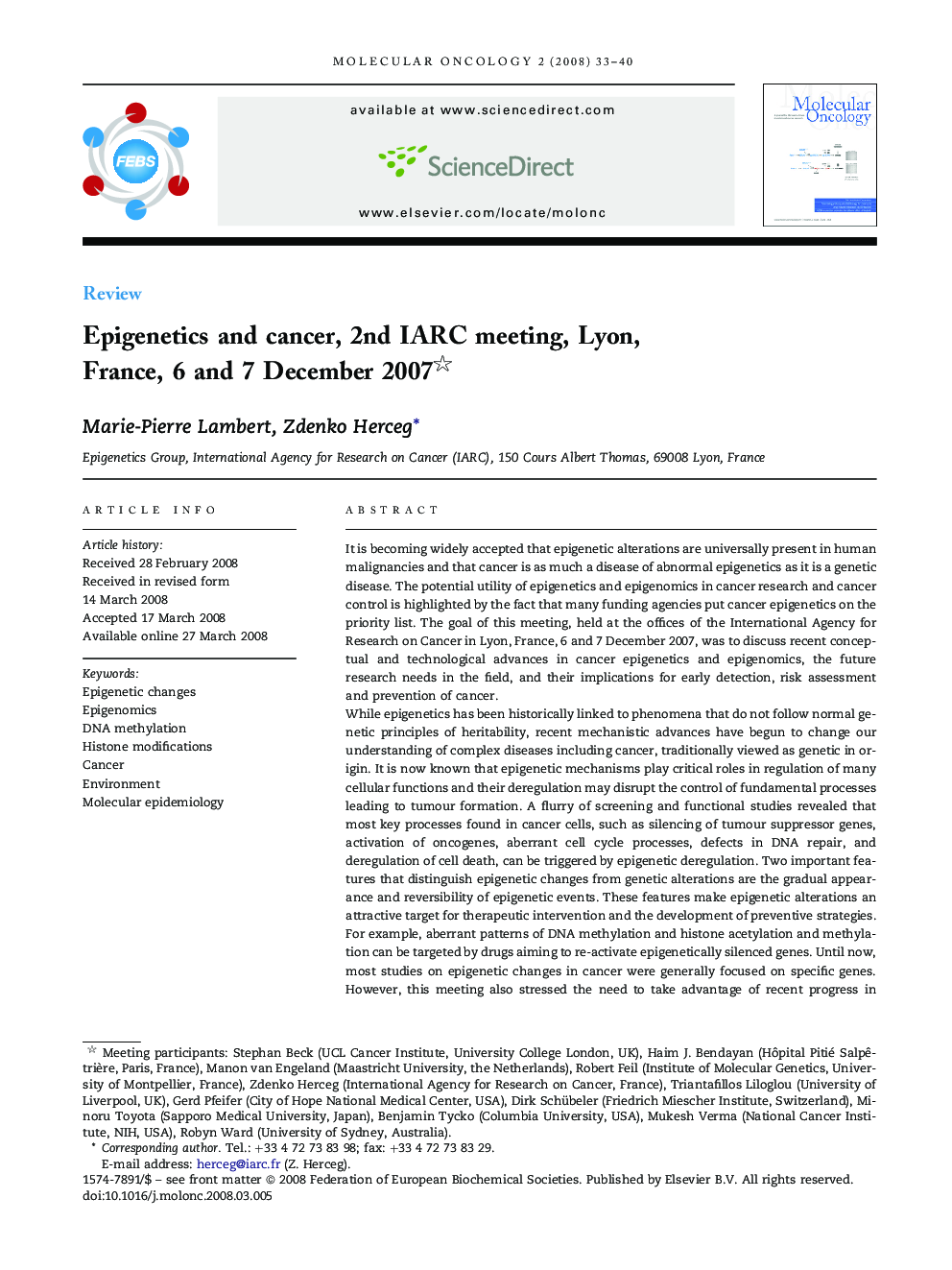| Article ID | Journal | Published Year | Pages | File Type |
|---|---|---|---|---|
| 2145677 | Molecular Oncology | 2008 | 8 Pages |
Abstract
While epigenetics has been historically linked to phenomena that do not follow normal genetic principles of heritability, recent mechanistic advances have begun to change our understanding of complex diseases including cancer, traditionally viewed as genetic in origin. It is now known that epigenetic mechanisms play critical roles in regulation of many cellular functions and their deregulation may disrupt the control of fundamental processes leading to tumour formation. A flurry of screening and functional studies revealed that most key processes found in cancer cells, such as silencing of tumour suppressor genes, activation of oncogenes, aberrant cell cycle processes, defects in DNA repair, and deregulation of cell death, can be triggered by epigenetic deregulation. Two important features that distinguish epigenetic changes from genetic alterations are the gradual appearance and reversibility of epigenetic events. These features make epigenetic alterations an attractive target for therapeutic intervention and the development of preventive strategies. For example, aberrant patterns of DNA methylation and histone acetylation and methylation can be targeted by drugs aiming to re-activate epigenetically silenced genes. Until now, most studies on epigenetic changes in cancer were generally focused on specific genes. However, this meeting also stressed the need to take advantage of recent progress in epigenomics and emergence of powerful technologies for detection of epigenetic changes in high throughput and genome-wide settings. This may further advance our capacity to evaluate the contribution of epigenetic changes induced by environmental epimutagens to human cancer. This information may prove critical for the design of efficient strategies for early diagnosis, therapy, and prevention of cancer.
Keywords
Related Topics
Life Sciences
Biochemistry, Genetics and Molecular Biology
Cancer Research
Authors
Marie-Pierre Lambert, Zdenko Herceg,
